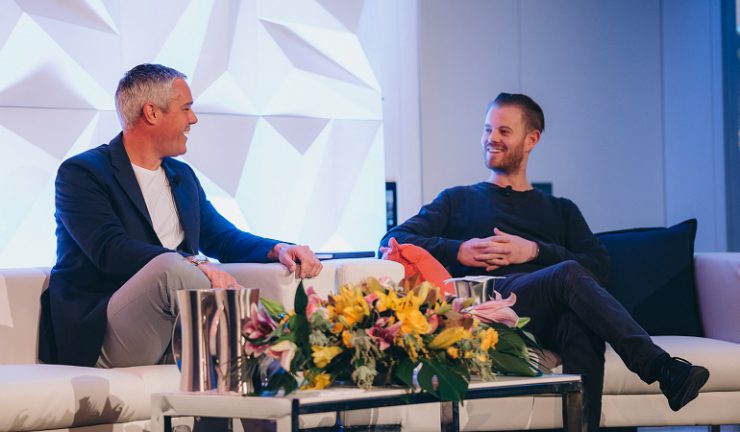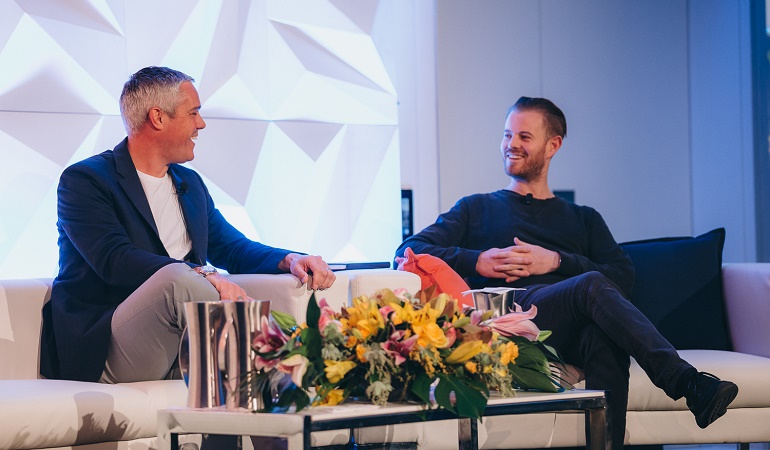Pyramid concept turned upside down.
Continuing with the culture theme, Myer omni-channel general manager, Robbie Tutt asked John Winning how important culture was to his group.
“Everything. We used to say ‘customers first’ but a few years ago when attending another retailer event it was said the team comes first which sort of disrupted the old school concept of culture in the organisation. We adopted a conversion model, starting with the team, then your operations, followed by the customer and then the shareholders that turned the pyramid concept upside down. The customer on the phone, the customer being served, the customer getting the delivery, yes the customer is the most important thing at that point in time. But you cannot have that without the culture to motivate the team towards that. To me it is culture before the customer because I don’t think it is possible the other way around.”
Responding to Tutts question about how to motivate the team to deliver this Winning said: “It’s controversial and comes in two parts. Our mission and values is to say ‘yes in a no’ world and make sure everyone in the Wining Group knows that.”

Myer’s Robbie Tutt with Winning Group’s John Winning
The second part revolves around staff. “We had a reasonably high staff turnover in the early period when we were growing quickly and hired a lot of people. Over the last five years we have hired around 100 new staff a year from a starting point of about 100 employees. It is hard to keep that going without having some churn but we quickly work out who fits and who doesn’t. We have to be ruthless with this because good enough is not good enough. You have to be exceptional otherwise you won’t survive within our business.”
As to why the group still produces catalogues Winning believes these don’t work although the group did have catalogues for Appliances Online in the past which he described as more of headache with designing and printing. “You are a sitting duck for everyone else in the market when it comes to pricing for the next 30 days. We tried catalogues without pricing, concentrating on product benefits, inviting the customer to visit the website for best daily prices. We decided to test the effectiveness of catalogues by dropping over one million in one state capital that resulted in almost no spike in sales. We still do it on the retail side but I question their value and it is probably the number one issue I have with the marketing team at the moment because we are trying to become a paperless business.”

